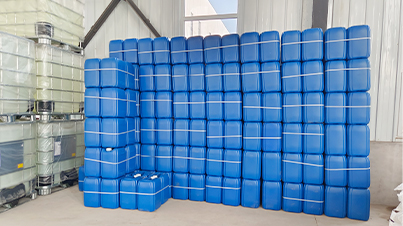Effective Strategies for Preventing Scale Formation in Water Treatment Systems Using Inhibitors
The Importance of Scale Inhibitors in Water Treatment
Water is an essential resource for life, industry, and agriculture. However, its quality can often be compromised by the formation of scale, which poses significant challenges in various applications, including cooling towers, boilers, and industrial processes. Scale, primarily composed of mineral deposits like calcium carbonate and magnesium silicate, can accumulate over time, leading to inefficiencies, increased energy consumption, and costly maintenance. To combat these issues, scale inhibitors play a crucial role in water treatment solutions.
What Are Scale Inhibitors?
Scale inhibitors are chemical substances designed to prevent the precipitation and deposition of scale-forming minerals in water systems. They work by altering the physical and chemical properties of these minerals, ensuring they remain dissolved in the water rather than forming solid deposits. Various types of scale inhibitors exist, including phosphonates, polymers, and organic acids, each tailored for specific applications and conditions.
Mechanism of Action
The effectiveness of scale inhibitors lies in their ability to disrupt the crystallization process of scale-forming minerals. When water is heated or subjected to evaporation, the solubility of certain minerals decreases, which can trigger crystallization. Scale inhibitors interfere with this process by
1. Dispersing Suspended Particles They help to keep scale-forming particles in suspension, thereby preventing them from coming together to form larger deposits. 2. Crystal Growth Inhibition Some inhibitors can modify the rate of crystal growth, effectively controlling the size and structure of the forming crystals, making them less likely to adhere to surfaces.
3. Sequestering Metal Ions Certain scale inhibitors can bind to metal ions, rendering them less available for precipitation, thus reducing the likelihood of scale formation.
Benefits of Using Scale Inhibitors
scale inhibitor water treatment

The use of scale inhibitors in water treatment provides numerous benefits
- Efficiency Improvement By preventing scale formation, these inhibitors help maintain the efficiency of heat exchangers and boilers, leading to lower energy consumption and reduced operational costs.
- Extended Equipment Life Scale buildup can cause significant wear and tear on machinery. By minimizing scale formation, inhibitors contribute to the longevity of equipment, reducing maintenance and replacement costs.
- Enhanced Water Flow In cooling systems, scale can obstruct pipes and reduce water flow. Scale inhibitors help maintain optimal flow rates, ensuring that systems operate effectively.
- Environmental Impact Using scale inhibitors can reduce the need for harsh cleaning chemicals and mechanical removal of scale, leading to a lower environmental footprint associated with water treatment practices.
Application in Various Industries
Scale inhibitors are employed across various sectors, including oil and gas, power generation, and municipal water systems. In oil fields, they are used to prevent scale formation in pipelines, while power plants employ them in cooling water systems and steam generation processes. Municipal water treatment facilities also use scale inhibitors to ensure that water supplied to consumers is free from problematic mineral deposits.
Conclusion
Scale inhibitors are a vital component of effective water treatment strategies. By preventing the formation of scale in various systems, they not only enhance efficiency and extend equipment life but also contribute to reducing environmental impacts. As industries continue to face challenges related to water quality and resource management, the role of scale inhibitors will become increasingly important in ensuring sustainable water use and maintenance of infrastructure. Investing in advanced scale inhibition technologies is essential for optimizing operations across diverse sectors and securing a reliable water supply for the future.
-
Pbtc Scale InhibitorPBTC: A Scale Protector for Industrial Water TreatmentNewsAug.05,2025
-
Organic Phosphonate: An Efficient Defender in the Field of Scale InhibitionNewsAug.05,2025
-
Hydrolyzed Polymaleic Anhydride: Green Pioneer in Scale Inhibition FieldNewsAug.05,2025
-
PAPEMP Polyamino Polyether Methylene Phosphonic Acid For SaleNewsAug.05,2025
-
Flocculant Water Treatment: A Pioneer in Purification in the Field of Water TreatmentNewsAug.05,2025
-
Benzyl Isothiazolinone: An Efficient and Broad-Spectrum Antibacterial Protective GuardNewsAug.05,2025





